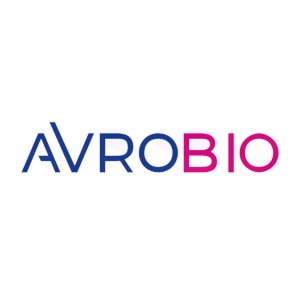AVROBIO Announces Neuronopathic Mucopolysaccharidosis Type II (nMPS-II) or Hunter Syndrome Clinical Trial Application (CTA) Accepted by U.K. Regulatory Agency to Initiate Pediatric Phase 1/2 Gene Therapy Trial
AVROBIO has received approval from the U.K. MHRA for a Phase 1/2 clinical trial of AVR-RD-05, a gene therapy targeting Hunter syndrome in infants aged 3 to 12 months. The trial, conducted in collaboration with the University of Manchester, aims to assess the safety and tolerability of this innovative autologous hematopoietic stem cell therapy. The FDA has previously granted rare pediatric disease and orphan drug designations for AVR-RD-05. The first patient is expected to be dosed in 1H 2023, marking a significant step forward in treating this debilitating condition.
- Approval from the U.K. MHRA for Phase 1/2 clinical trial of AVR-RD-05.
- FDA granted rare pediatric disease and orphan drug designations for AVR-RD-05.
- Trial aims to evaluate safety and tolerability for infants with Hunter syndrome.
- First patient expected to be dosed in 1H 2023, indicating progress in clinical development.
- None.
Insights
Analyzing...
First in-human pediatric Phase 1/2 study to evaluate the safety and tolerability of first-in-class gene therapy targeting infants age ≥3 months and ≤12 months, diagnosed with nMPS-II
UoM’s 24-month, non-randomized, open label study will enroll up to five children aged ≥3 months and ≤12 months diagnosed with nMPS-II to evaluate the safety and tolerability, pharmacodynamic and clinical efficacy of HSC gene therapy. The gene therapy, which
“We are thrilled to collaborate with the team at UoM to bring to infants and families living with Hunter syndrome a potential one-time therapy for this devastating disease. Hunter syndrome causes complications throughout the body, including severe neurological, cardiac and respiratory dysfunction, skeletal malformations and hearing impairment," said
UoM expects to dose the first patient in the trial in 1H 2023. The study will be overseen by
“It’s incredibly exciting to have the opportunity to test our investigational brain-targeted HSC gene therapy in boys with Hunter disease,” said
To find out more about the trial, contact mpsiitrial@manchester.ac.uk, Simon.Jones@mft.nhs.uk or Robert.wynn@mft.nhs.uk.
Previously, the
About Hunter syndrome
Hunter syndrome is caused by a deficiency in the lysosomal enzyme iduronate-2-sulfatase (IDS), which is essential for breaking down large sugar molecules. It affects an estimated one in 100,000 to one in 170,000 males worldwide. Children with severe cases of Hunter syndrome typically show early symptoms of the disease in infancy and childhood and begin to regress developmentally, losing basic motor skills and cognitive function over a few years. The neuronopathic form of MPSII is characterized by cognitive, language and motor skills declining early in childhood.
The current standard of care is weekly enzyme replacement therapy (ERT), which can delay some peripheral disease complications but does not halt overall progression of the disease and has not been demonstrated to address the central nervous system (CNS) issues. Even with ERT, people with Hunter syndrome face life-limiting symptoms and a significantly reduced lifespan.
About
Our vision is to bring personalized gene therapy to the world. We target the root cause of genetic disease by introducing a functional copy of the affected gene into patients’ own hematopoietic stem cells (HSCs), with the goal to durably express the therapeutic protein throughout the body, including the central nervous system. Our first-in-class pipeline includes clinical programs for cystinosis and Gaucher disease type 1, as well as preclinical programs for Gaucher disease type 3, Hunter syndrome and Pompe disease. Our proprietary plato® gene therapy platform is designed to be scaled to support late-stage clinical development and commercialization globally. We are headquartered in
Forward-Looking Statements
This press release contains forward-looking statements, including statements made pursuant to the safe harbor provisions of the Private Securities Litigation Reform Act of 1995. These statements may be identified by words and phrases such as “aims,” “anticipates,” “believes,” “could,” “designed to,” “estimates,” “expects,” “forecasts,” “goal,” “intends,” “may,” “plans,” “possible,” “potential,” “seeks,” “will,” and variations of these words and phrases or similar expressions that are intended to identify forward-looking statements. These forward-looking statements include, without limitation, statements regarding our business strategy for and the potential therapeutic benefits of our preclinical and clinical product candidates, including AVR-RD-05 for the treatment of nMPSII or Hunter syndrome, the potential benefits and incentives provided by the FDA’s rare pediatric disease and orphan drug designations for AVR-RD-05, statements regarding the expectations or activities of our collaborators including timing of clinical trial initiation and dosing of patients, the design, commencement, enrollment and timing of planned clinical trials, preclinical or clinical trial results, product approvals and regulatory pathways, our plans and expectations with respect to interactions with regulatory agencies, anticipated benefits of our gene therapy platform including potential impact on our commercialization activities, timing and likelihood of success, the expected benefits and results of our implementation of the plato platform in our clinical trials and gene therapy programs, and the expected safety profile of our preclinical and investigational gene therapies. Any such statements in this press release that are not statements of historical fact may be deemed to be forward-looking statements. Results in preclinical or early-stage clinical trials may not be indicative of results from later stage or larger scale clinical trials and do not ensure regulatory approval. You should not place undue reliance on these statements, or the scientific data presented.
Any forward-looking statements in this press release are based on AVROBIO’s current expectations, estimates and projections about our industry as well as management’s current beliefs and expectations of future events only as of today and are subject to a number of risks and uncertainties that could cause actual results to differ materially and adversely from those set forth in or implied by such forward-looking statements. These risks and uncertainties include, but are not limited to, the risk that any one or more of AVROBIO’s product candidates will not be successfully developed or commercialized, the risk of cessation or delay of any ongoing or planned clinical trials of
View source version on businesswire.com: https://www.businesswire.com/news/home/20220914005543/en/
Investors:
Westwicke, an
339-970-2843
chris.brinzey@westwicke.com
Media:
Ten
617-999-9620
krodophele@tenbridgecommunications.com
Source:







